
We’d all like to think we would recognize a scam when presented with one, and yet as digital communication has evolved, so has the sophistication of all kinds of scammers. We have shared tips in the past in how to spot and avoid suspicious phone calls and phishing e-mails, and this time, we’d like to talk about text message scams, also known as ‘smishing’.
Smishing can be effective due to the personal nature of text messages - after all, your inbox is reserved mainly for close friends, family, and businesses that received your consent for such communication. Like most scams, the goal is to obtain your personal information through fraudulent means and get access to your bank account. These are the biggest warning signs for a smishing text, and how to avoid them.

Legitimate marketing text messages are usually sent from a 6-digit shortcode, a text-enabled, 10-digit toll-free number, or a business’s existing ten-digit landline. If the text you receive is from an unidentified 11-digit number, the odds are high it is a scam.
Even if the sender identities as your bank, insurance agency, or any other reliable source, you should look at the number the text was sent from for verification.

This is one of the most common text scams and it also happens to be one of the simplest. The recipient will be notified in a text message that they’ve won a raffle, giveaway, or something of that nature. There are usually a few steps to claim the “prize”, like clicking on a provided link and entering personal details.
If you haven’t entered any specific contest or giveaway, you should ignore the text and delete it. Do NOT click on the link. In case you’re not sure if you did, reach out to the brand holding the giveaway on their verified website or social media pages to double-check before clicking on the link or sharing any personal details.

Another common text scam is the refund scam, claiming there is money owed to you. These texts usually claim they are from a government agency or a monthly billing program, saying you have been “overcharged” and deserve a refund. Oftentimes they will include a link to a screen where you can share your direct deposit information so the charge can be reversed. Once again, do not click on it. Once they secure your routing number, they can access your account and steal from you.
Know that government agencies do not perform transactions through text messaging. So messages claiming to be from such sources are a definite scam.

This, too, is a common trick and can be a very frightening one. In a family emergency scam, you will receive a message saying something along the lines of “Your family member who lives in X (or is traveling in X) has run into some trouble and a money transfer is the only way to help them". Often, the scammers will claim that trying to contact that family member will cause them harm.
Because these texts are so alarming they tend to work. But before you panic and do anything rash, reach out to a trusted family member to verify the scammer’s story, even if they say to keep it a secret. In case the scammer claims they are the family member themselves, texting from a new pre-paid phone, you can try to ask them questions a stranger wouldn’t know the answer to. If you’re in doubt you could always call 1-877-FTC-HELP for advice.

These scams look innocent on the surface and are similar to common phishing emails. The text will say that a password to your email or some app has expired, used on another device, or hacked and that your account was deactivated for your protection.
In the case of these messages simply delete them. Do not reply nor share any of your passwords. Simply check the account in question. When you see that it’s not deactivated, you’ll have your answer.
Pass on this important information by sharing this article with friends and family

WARNING: Covid-19 Vaccination SCAMS To Watch Out For!
Excitement and uncertainty create the perfect environment for scammers. This is how to recognize and avoid Covid-19 vaccination appointment scams.

Why Sitting Down is Slowly Putting Your Health at Risk
Some facts everyone should know about sitting.
 4:19
4:19
15 Gas Station Foods You Should Avoid At All Costs
Nothing ruins a trip like food poisoning. Here are 15 foods to never buy at a gas station.

Warning! Avoid These Exercises If You're Over 50
Once you're in your fifties, choosing to work out in the same way you did in your twenties is quite simply a recipe for disaster! Learn more here.

These Houseplants Are Dangerous For You and Your Pets!
Some houseplants look beautiful but could pose a danger for small children and pets alike. Find out about 9 common poisonous houseplants.

Neglecting to Clean These Items Can Be DANGEROUS
These items in your home have to be cleaned regularly. Otherwise, they can become a real fire hazard!
 5:13
5:13
Want Windows on Your Mac? It's Now Free!
Need to install Windows 10 on your Mac? It’s quite easy, actually.
 15:06
15:06
Android 14: Learn All the New Features in the Newest Update
Sit back and learn what's new in your android phone in this informative video.
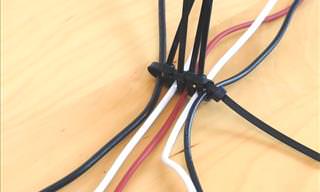
5 DIY Solutions to Better Organize Your Cords and Cables
Computer cables have an annoying tendency to tangle and create an unseemly mess. Here are some easy ways to prevent that.

FYI: 7 Simple Ways to Avoid Hacking and Identity Theft
The internet is an amazing tool and a fun opportunity to add to your knowledge, it's important to remember to have fun while keeping yourself secure and safe from identity theft. These are the basic habits you need to have to keep your online identit

You Should Try These Awesome YouTube Alternatives
YouTube isn’t the only video site out there. Here are some cool alternatives that are worth trying.
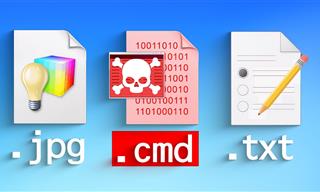 14:08
14:08
BEWARE! These File Types Could Contain Viruses
Be careful before you click any file these days. Hackers may have used them to hide viruses.
 8:47
8:47
SHOCKING: This is How Easily We Get Hacked by Cyber Crooks
Hackers can get almost any piece of information from us, without us even knowing. This will really make you think twice.
 15:04
15:04
Can A.I. Outperform These 20 Professionals?
Here's a comparison video we're all secretly curious about...
 2:01
2:01
WiFi Guide: This Is How You Can Get a Better Connection
Is the wireless internet reception in your home shoddy or weak? This video guide will show you what you need to do to fix it.

Computer Tips: All You Can Do With the CTRL/Control Key!
The control key has more uses than just copying and pasting. These are the 20 more useful keyboard shortcuts you can do with the control key.

The Best Media Player Alternatives for Your Computer
Looking for a solid alternative to VLC media player? Here are some replacements that might help.

What's the Healthiest Way to Sit at Your Computer?
Learn how to minimise the health risks of using your computer with this positioning guide.

6 Unnecessary Windows Programs You Should Uninstall
Your Windows PC could be filled with unwanted and outdated apps and programs... Delete them today.

There's a keyboard Shortcut for Nearly Everything Here!
These shortcuts will cut down the time you waste fiddling about on the computer, and make you into something of an expert.
 12:03
12:03
INSTAGRAM: A Complete Beginner's Tutorial
This tutorial is designed to help you understand the basics, from setting up your profile to sharing your first post.

Your Computer Mouse Can Do Much More Than You Think...
Knowing how to use your mouse can make computing so much easier than you ever realized. Here are some great tips on how to maximize the use of your mouse, which will increase your overall productivity on the computer.
 10:39
10:39
THREADS: Everything to Know About Instagram's New App
Instagram’s new app, ‘Threads’, has taken the world by storm? But what is this app all about? And should you use it?

5 New Windows 11 Features You Don’t Know About
You may have missed these new Windows 11 features.

These Password Tips Will Ensure You're Safe from Hackers
Cybercrime is increasing thanks to ever-improving technology. Therefore, it's very important that you have a strong password. These tips will ensure you do!

If You Do This, Then You Could Be Damaging Your Phone...
Many people end up damaging their phones without even realizing that they are doing so, and here are 9 of the most common ways this happens.

5 Terrific Chess Apps for Players of All Levels
These apps are designed to cater to a wide range of chess players, including beginners, amateurs, advanced players, and experts.
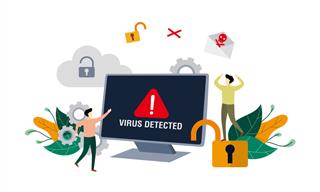
No Antivirus? Try These Free Online Virus Scanners Now!
Don’t have an antivirus installed? No problem. Try these free online virus scanners instead.

9 Lesser-Known Tips for Using Facebook Messenger
Learn some of the hidden tips and tricks on the popular Facebook Messenger app.

Read Our Beginner's Guide to Microsoft Word Here
Get the most out of the most widely-used word-processing application in the world, with our simple beginner's guide to Microsoft Word.
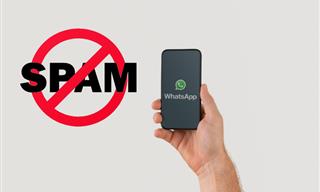
Spotting WhatsApp Spam: 5 Tips for Safe Chatting
Due to WhatsApp's increasing popularity, the number of spam texts in circulation has also grown. Here's how you can spot them.
 2:38
2:38
How to Transfer Your Old VHS Tapes to a Computer
Do you have old family videos on VHS? It's time to make them digital so you can share them with all the family more easily! This video will show you how.

Beyond Chrome: 5 Private Browsers for Better Security
For those who prioritize their online privacy, there are some alternatives to Chrome available that could be explored.
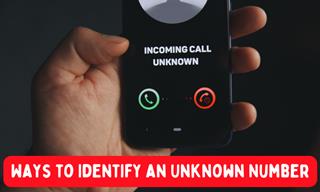
How to Identify the Owner of a Phone Number: 5 Methods
Received a call from an unknown number? Use these sites to identify the caller.

What Do Those 12 Mysterious 'F' Keys on Your Keyboard Mean?
Find out what those 12 curious F keys on your keyboard mean.

6 Weird But Useful Apps You Didn’t Know You Need
If you’re not using these weirdly useful apps, you’re missing out on a lot of fun!

12 USEFUL Chrome Extensions That Save Time
Improve your browsing experience with these free Google Chrome extensions.

The Only Guide You Need to Clean Your Computer
Computers collect dust and dirt, causing them to slow down and heat up. Here's how to clean them:

These Shortcuts Make Using My PC SO Easy!
Shortcuts make life easier in many parts of life, and computing is no different. Here we'll show you how your keyboard can be used to speed things up.

7 Apps You Don’t Need on Your Phone!
Experts advise against installing apps like the seven we mention here for security reasons...

My Email Has Been Hacked! What Should I Do Next?
Don’t panic if your email has been breached. Just follow these steps to secure yourself.

10 Safe & Free Movie Streaming Sites Anyone Can Use
Check out some of the best free and legal streaming sites for your next binge.
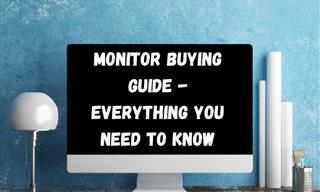
Is This Monitor Best for You? A Screen Buying Guide
Looking to buy a new computer monitor? This buying guide will help make that decision easier.
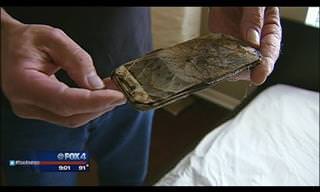 2:55
2:55
THIS is Why You Shouldn't Take Your Phone to Bed!
A stern warning and a cautionary tale that will explain why you shouldn't sleep with your phone...

9 Underrated Free Websites That Will Make Your Life Easier
Yes, there are still many more useful websites you don’t know about!

These 10 Keyboard Shortcuts Will Make Life Easy!
These keyboard shortcuts will help you learn the easiest ways to use your computer when your mouse is being less than cooperative!

5 Ways to Make Your Wi-Fi Safe From Attacks & Hacks
Make sure you protect your Wi-Fi network against these common attacks.


